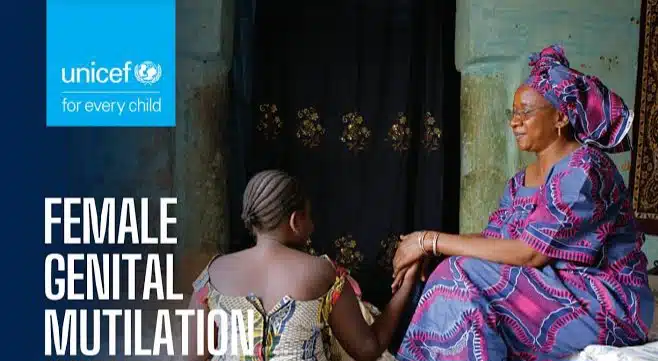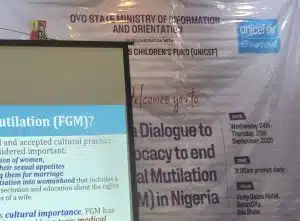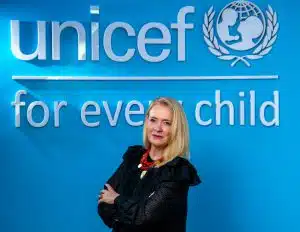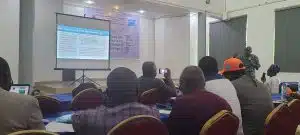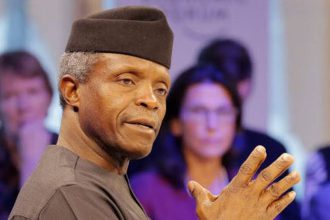If urgent steps are not taken, the psychological and economic toll of Female Genital Mutilation (FGM) in Nigeria could increase by 50% in many communities before 2030, experts have cautioned.
This warning came during a two-day media dialogue held in Benin on Tuesday, September 24, with the theme “Accelerating Actions to Eliminate Harmful Practices Against Women and Girls.” Organized by the Oyo State Ministry of Information and Orientation in partnership with UNICEF. The event also emphasized the critical role of men in ending the crude practice.
Nigeria currently ranks third globally, after India and Bangladesh, in the number of women and girls affected by FGM.
According to UNICEF, nearly 20 million Nigerian women and girls have undergone the practice, with most cut before the age of five.
“Female genital mutilation is never a choice, but a violation that is inflicted on women and girls,” said Celine Lafoucriere, Chief of UNICEF’s Lagos Field Office, in her address to journalists and civil society participants.
“At an age when they are powerless to consent or resist, their rights are taken away. Despite being outlawed, the practice persists, fuelled by myths and traditions. But no culture or custom should ever come at the expense of a girl’s health, dignity or future.”
She highlighted that ongoing collaborations such as the Movement for Good spearheaded by the Federal Government and UNICEFare yielding progress. Millions of Nigerians have pledged to protect girls from being cut, with survivors leading the advocacy and young people demanding change.
“The stories you tell as journalists can spark the change we need,” Lafoucriere urged. “Use your platforms to amplify survivors’ voices and inspire families to choose differently for their daughters.”
While stakeholders celebrated the progress made, UNICEF Child Protection Specialist, Dennis Onoise, warned of the grave consequences if momentum is lost.
“FGM can end ten times faster with strong collaboration among stakeholders. If not, the economic cost could rise by 50% before 2030,” he said. “We are prepared to work with state assemblies and law enforcement to strengthen laws and curb this harmful practice.”
Similarly, FGM consultant, Mrs. Aderonke Olutayo, challenged long-held stereotypes about communities that uphold the practice, stressing that many realities contradict the myths that sustain it. She urged wider awareness and deeper collaboration among stakeholders.
“The media must set the agenda to dismantle this practice,” she said. “Raising public consciousness on its impact on women, families, and society is critical to ending it.”
Blessing Ejiofor, UNICEF’s Communication Officer, explained that the dialogue was designed to equip journalists with practical tools to strengthen advocacy, particularly in South-West states where the practice remains widespread.
Stakeholders at the meeting resolved to intensify partnerships with State Houses of Assembly to secure stronger budgetary commitments and work closely with law enforcement agencies to enforce anti-FGM laws.
The event concluded with a shared commitment: to ensure that every Nigerian girl grows up free from the fear and trauma of female genital mutilation.


